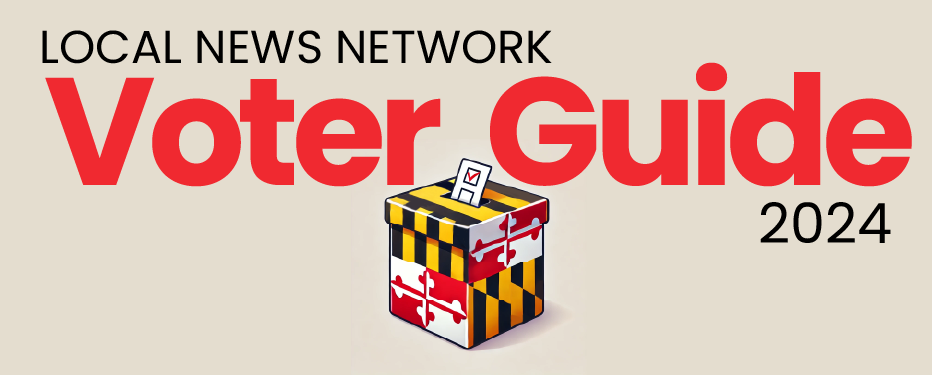Shebra Evans
Running for school board in Montgomery County District 4
How old will you be on Election Day (Nov. 5)?
52
Are you currently employed? If so, where, and what is your job title?
Montgomery County Board of Education.
What is the highest level of education that you completed, and where did you get that degree?
Bachelor's degree in economics and finance from Tennessee State University.
Why are you running for the school board?
I'm committed to ensuring our students receive a high-quality education and believe that commitment requires a proven track record to get the job done. I have successfully collaborated with my colleagues over the years, worked with partners at the various levels of government and devoted my time locally and at the state level to address the inequities that have disadvantaged students and want to continue working toward the progress we all strive for.
What makes you a good candidate for the board?
I have worked effectively with three superintendents and understand how to work through change. My steady leadership has allowed me to serve as board president for two consecutive terms including during the height of the pandemic. The respect of my colleagues has garnered me leadership roles at the local and state level. Currently, I serve as treasurer at the Maryland Association of Boards of Education. My focus remains on being an outspoken advocate for pre-kindergarten expansion. During my tenure, Montgomery County Public Schools has added 1,000+ seats because of my dedication and commitment to prioritizing the budget on investments for our earliest learners. It is critical that we set all students up for success but especially students growing up with limited resources. During my tenure, Montgomery County Public Schools has enhanced career and technology education by increasing offerings and having regional career and technology education options available throughout the county. During the last few years on the board, with the support of my colleagues, we have pushed for and overseen the rapid growth of students graduating with their associates degree and high school diploma. College is now more affordable for those students who continue on directly to get a bachelor’s degree, and it means that those who choose to enter the world of work immediately have a valued credential to jump-start their careers.
What is the most important issue facing your school board and what would you do about it if elected?
As an experienced board member, I am keenly aware that we must be laser focused on getting results for our investments. Focusing in on data and closely measuring the effectiveness of academic interventions has been a hallmark of my years on the board. As president of the board, I worked closely with then- Superintendent Jack Smith to increase the data analysis brought to and shared with the board to measure student growth and achievement. And serving on the board’s strategic planning committee, I worked with Montgomery County Public Schools to provide deeper and timelier results to assess progress towards the board’s goals. As a direct result of this heightened focus on data, my colleagues and I on the board pushed Montgomery County Public Schools to address long-standing disparities, especially in literacy and math—foundational subjects for building academic success. The result was the addition of math coaches and the transition to science of reading before the rest of the state required this shift. I am proud to say that we are seeing early promise in the area of literacy where there have been measurable improvements in kindergarten and first grade. Math coaches are reinforcing for teachers the importance of knowing the math and knowing students with depth and confidence to achieve grade-level rigor. Students are growing more confident in their abilities and how to talk through the work with peers and identifying more ways to do math work.
Please name a public leader you admire and explain why.
The public leader that has had a lasting impression on me is Rev. Dr. Martin Luther King Jr. He was vigilant in the fight against systemic oppression. He remained strong in his faith. He challenged everyone to think about life’s most persistent and urgent question, “What are you doing for others?” I’m constantly reminded of how vital the work of a board member is, and I feel strongly about making a positive impact in the lives of adults and children, particularly in education. I’ve carried that intensity every day for the past eight years serving as a school board member. It’s an honor and a privilege that I don’t take for granted.
The Blueprint for Maryland’s Future, passed by the General Assembly in 2021, is a 10-year plan that includes increased education funding to support early childhood education, increased teacher starting pay, college/career-readiness standards for high school graduates, and expanded services to multilingual and impoverished families, among other goals. Please tell us your views on the Blueprint and how it will affect your school district.
The legislation is setting the expectation that school districts will make good on the promise to graduate students college-, career- and community-ready. The investment in early education will play a critical role in setting students up for success, particularly economically disadvantaged students. More targeted supports will eliminate long standing learning gaps. Attracting highly qualified and diverse teachers warrants creating opportunities and incentives to recruit and retain top talent. I fully support the legislation and ongoing conversations with the Maryland State Department of Education and Accountability and Implementation Board about opportunities we see with this legislation, as well as the challenges related to funding and incentivizing other school staff.
Some school districts nationwide are placing new limits on the use of cellphones in middle and high schools. What do you think should be the policy on student use of cellphones in your district, and why do you support that policy?
It’s extremely important for students to be actively engaged and participating in their education. Students can better engage when distractions are limited. All things considered, it is still important to be thoughtful and implement a responsible approach to using technology. At the board’s request, a few schools are piloting a “no cellphone” zone. Feedback will be shared in the spring of 2025 with the board and broader community. The feedback will be used to decide the best way to standardize a “no cellphone” policy but also to ensure no unintended consequences will exist as a result of policy revisions.
Are you satisfied with your school district's efforts to ensure the safety of its students? What, if anything, should be done to improve school safety in your district?
We should never shy away from wanting to do our best and being the best at getting better. That means admitting there is still work that needs to be done to increase confidence that the district is committed to safety and security. Knowing what’s happening in each school and creating a better experience is top of mind. Ongoing audits are being done across the district to increase transparency and accountability. The student ID program has been implemented in schools. Cameras continue to be strategically placed throughout buildings. More alarms on doors. Community engagement officers are working with school principals and security team leads to work to build community, understand what it means to be culturally responsive, know what a trauma-informed response looks like, learn our code of conduct and learn restorative practices. Schools are hosting community events along with community partners to share countywide resources. The work is ongoing.
Do you think there are circumstances when books should be removed from school libraries? If so, what kind of books should be removed, and who should make those decisions?
I don’t believe in banning books. I believe it’s important to teach tolerance, kindness and civility in schools through the curriculum. Our world is so diverse, and we learn so much when we engage in learning that includes different cultures and perspectives. In my opinion, it encourages students to think critically about their own beliefs and allow them to better navigate the multicultural society that we live in. A critical role of a board’s work involves family and community engagement. More can always be done to help ensure families are aware of the books being used for teaching and learning. In addition, share what materials are being made available in school libraries.
Some school districts enact policies allowing transgender and gender nonconforming students to use their preferred pronouns while at the same time not informing those students' parents about that decision. What is your opinion of such policies?
The culture of respect means feeling safe, supported and welcomed at school. My unwavering commitment to equity is reflected in my support and approval of the gender identity rights for students. Students should feel accepted and valued in their school environment.


